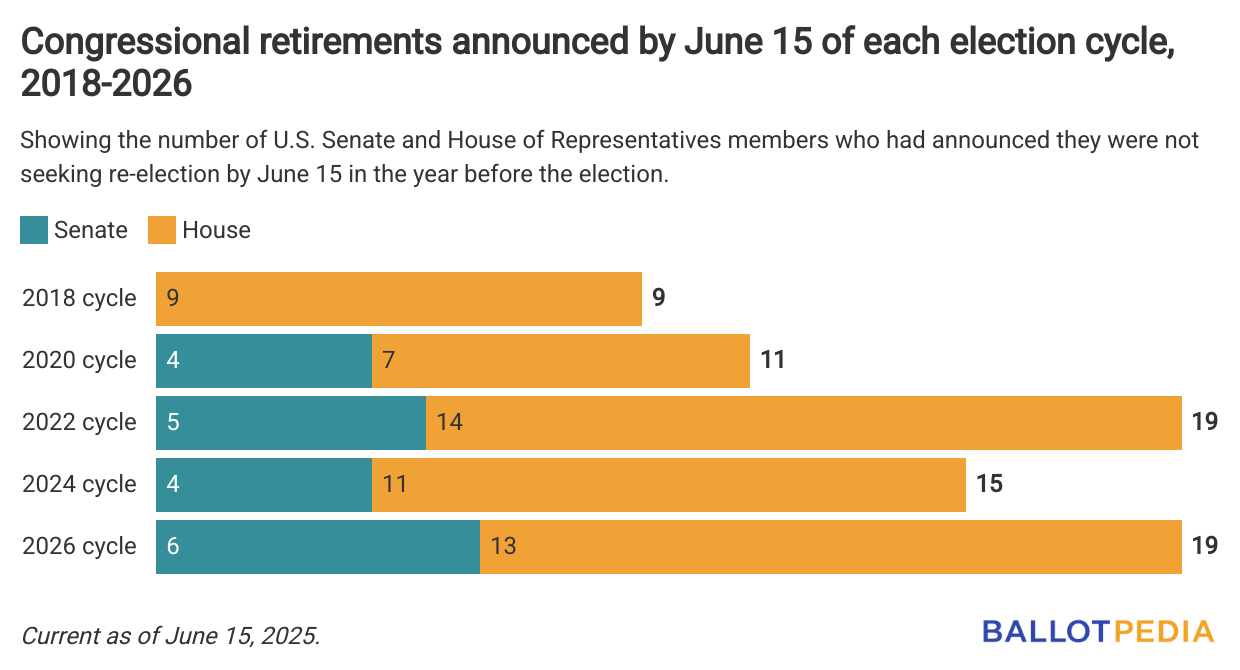|
|
Each week, The Weekly Brew brings you a collection of the most viewed stories from The Daily Brew, condensed. If you like this newsletter, sign up to The Daily Brew with one click to wake up and learn something new each day.
Here are the top stories from the week of June 16 - June 20. |
|
|
|
|
New Hampshire becomes 18th state with a universal private school choice program
|
|
|
|
|
|
|
On June 10, New Hampshire Gov. Kelly Ayotte (R) signed SB 295, which removed the income threshold from the state's Education Freedom Account Program (EFA) and made the program universal.
Private school choice programs provide public funds for alternatives to public schools, such as private schools and homeschooling. A universal school choice program means one for which all students are eligible, regardless of family income, location, demographics, or disability.
Currently, 18 states have universal private school choice programs. Fifteen of those states had a Republican trifecta when they enacted these programs, while the other three had divided governments.
In 2025, four states enacted or expanded programs related to private school choice. New Hampshire and Wyoming both passed bills expanding their school choice programs. Texas and Tennessee enacted programs creating ESA programs. Currently, 21 states have enacted ESA programs. |
|
|
|
|
|
|
|
|
|
|
A look at election results in Virginia from June 17
|
|
|
|
|
|
|
Virginia is holding elections for governor, lieutenant governor, attorney general, and all 100 seats in its House of Delegates this year. Here’s a look at the results of the June 17 primaries.
State executive offices
Both the Democratic and Republican gubernatorial primaries were canceled since Abigail Spanberger (D) and Winsome Earle-Sears (R) ran unopposed for their respective parties’ nominations.
Ghazala Hashmi (D) defeated five other candidates in the Democratic primary for lieutenant governor. The Republican primary was canceled because John Reid (R) ran unopposed.
Jay Jones (D) defeated Shannon Taylor (D) in the Democratic primary for attorney general. The Republican primary was canceled because incumbent Attorney General Jason Miyares (R) ran unopposed.
House of Delegates
There were 17 contested state House primaries, including nine Democratic and eight Republican primaries.
Ninety-six incumbents ran for re-election, leaving four open seats. No incumbents lost re-election in this year’s primaries. This election cycle is the third time since 2011 that no incumbents have lost re-election in a primary election or nominating convention. |
|
|
|
|
|
|
|
|
|
|
Trump administration limits American Bar Association’s access to federal judicial nominees and a look at past ABA ratings
|
|
|
|
|
|
|
On May 30, the U.S. Department of Justice announced it would eliminate the American Bar Association’s (ABA) role in reviewing federal judicial nominees. The ABA is a nationwide voluntary professional association of attorneys.
The ABA's standing committee on the federal judiciary issues ratings for individuals nominated to lifetime Article III federal judicial positions. The committee says it focuses on three areas in its evaluation: integrity, professional competence, and judicial temperament.
The ABA's committee reports provide one of three ratings for each nominee:
-
Well qualified
-
Qualified
-
Not qualified
As of June 16, the ABA has not yet offered ratings for Donald Trump's (R) federal judicial nominees during his second term. During his first term in office, the ABA rated 264 of Trump's nominees. Of those, the ABA rated 187 “well-qualified,” 67 “qualified,” and 10 “not qualified.”
During Joe Biden’s (D) administration, the ABA rated 245 of Biden's nominees. Of those, the ABA rated 207 “well qualified,” 35 “qualified,” and three nominees “qualified” and “well qualified.” |
|
|
|
|
|
|
|
|
|
|
Nineteen members of Congress have announced they will not seek re-election in 2026
|
|
|
|
|
|
|
Sen. Tommy Tuberville (R-Ala.) announced on May 27 that he will run for governor of Alabama in 2026 rather than re-election to the U.S. Senate.
Including Tuberville’s announcements, 19 members of Congress—six senators and 13 representatives—have announced they will not seek re-election in 2026.
 |
|
|
|
|
|
|
|
|
|
|
|
Access to Ballotpedia is free 365 days per year... but Ballotpedia is not free to operate. Every dollar given to Ballotpedia helps ensure we continue to expand our coverage of all elections in the United States. Provide your support today and give the gift of unbiased political and policy information to all Ballotpedia readers. |
|
|
|
|
|
|
|
|
|